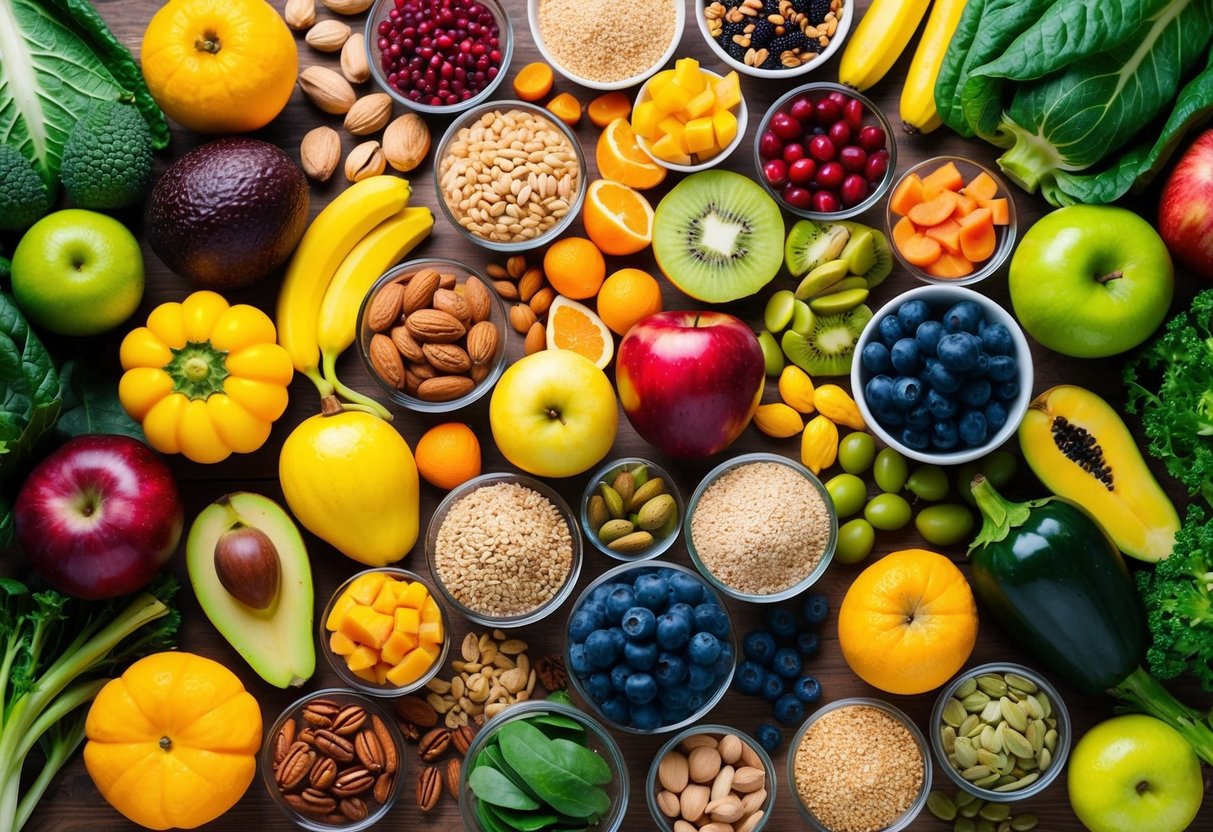Top Brain-Boosting Superfoods and Simple DIY Recipes
Berries: Blueberries and Brain Power
Blueberries are often hailed for their strong antioxidant properties. These berries protect the brain from free radicals and may reduce inflammation. Studies suggest that regular consumption of blueberries can lead to improved memory and cognitive processes.
Their rich content of vitamins C and K contributes to overall brain health, enhancing cellular repair and the development of neurotransmitters. Enjoying them fresh or frozen, as a snack or in cereal, can provide a simple way to reap the brain benefits these berries offer.
Key Nutrients for Enhancing Brain Function
Promoting cognitive health involves selecting foods rich in specific nutrients. Alpha-linolenic acid (ALA), healthy fats, and essential vitamins and minerals play significant roles in supporting brain health and function.
Alpha-Linolenic Acid (ALA) Benefits
Alpha-linolenic acid (ALA), a type of omega-3 fatty acid, is crucial for maintaining cognitive function. ALA is primarily derived from plant sources like flaxseeds, chia seeds, and walnuts. It contributes to building cell membranes in the brain and supports neuroprotective functions.
ALA has been shown to support mental sharpness and may play a role in improving mental clarity. While the body can convert ALA into other omega-3 fatty acids, this process is relatively inefficient. Including ALA-rich foods in one’s diet helps ensure an adequate intake of these essential fatty acids.
Healthy Fats for a Healthy Mind
Healthy fats are vital for brain function, supporting cell structure and signaling. Sources include avocados, nuts, and olive oil. These fats provide the building blocks necessary for brain cells and support neurotransmitter function.
Incorporating healthy fats into the diet can improve cognitive performance, memory, and mood. Fatty acids, such as DHA and EPA, found in fish like salmon, are essential as they contribute to the fluidity and integrity of cell membranes. Regular consumption of these fats is associated with a lower risk of cognitive decline.
Essential Vitamins and Minerals
Vitamins and minerals are indispensable for brain health, playing roles in enzyme function and neurotransmission. B vitamins, including B6, B12, and folate, are crucial for brain function and have been linked to a reduced risk of cognitive decline. These vitamins support homocysteine metabolism, which is associated with brain health.
Additionally, minerals like magnesium and zinc are involved in maintaining neuronal function and synaptic plasticity. Sources of these nutrients include leafy greens, whole grains, nuts, and seeds, all contributing to maintaining optimal brain function.
By integrating these vitamins and minerals into one’s diet, individuals can support brain health and cognitive performance.
Simple and Nutritious Breakfast Ideas

Starting the day with a nutritious breakfast can set a positive tone. Incorporating ingredients like eggs, spinach, chia seeds, and berries brings flavor and health benefits. These breakfast ideas are easy to prepare and offer a delicious way to boost energy and focus.
